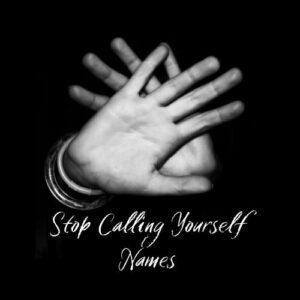Simply put, blame is “to find fault with,” and most of us understand intellectually that has a corrosive effect on relationships, with ourselves and others.
“We have far more power than we think to transform troubled relationships – if we’re willing to stop blaming the other person and focus instead on changing ourselves.” David Burns, MD
So if blame is so relationally destructive why do we hang on to it so tightly and have such a hard time giving it up?
The answer may be found by uncovering some hidden advantages of blame and the price of giving it up. Here are a few areas we pay a price when it comes to letting go of blame:
Loosening convictions. A tricky thing about blame is that it doesn’t feel like blame, it feels like truth. Instead of recognizing our position as one of finding fault, we instead see it as expressing our convictions. Fundamentally, blame is a pattern of thoughts and thoughts are interpretations of reality that we easily and often confuse as a reflection of reality itself. In order to give up blame, we have to admit to the bias of our perspective which requires a willingness to admit our thoughts may be distorted and, even worse, wrong.
Taking responsibility. Blame maintains an illusion that other people are the source of our happiness (and unhappiness). When we give up blame, we are left with ourselves and often forced to accept our emotional prisons are self-made. This can be daunting and frightening. Sometimes it’s better to just keep trying to get other people to do what we aren’t willing or able to do for ourselves rather than take responsibility for our emotional lives. The downside of this deal is that when we give others responsibility for our feelings we also give them power over them.
Pro Tip: When you blame someone else, you give them credit for causing your feelings and effectively disempower yourself. When you believe someone else is responsible for your feelings you will be very motivated to focus on and control their actions and thereby miss the chance to learn how to manage your own thoughts and feelings.
Risk of Self-Blame. Sometimes blaming someone else is how we keep from blaming ourselves. If we give up blame towards someone else, we may find ourselves on the receiving end of our own self-loathing and rejection.
Pro Tip: When you blame yourself, you convict yourself and remove the option for change because the only place to go from there is sentencing and punishment.
Disillusion of Idealized Self. This is an extension of perfectionism based on attachment to an idealized version of ourselves. When you have rigid moral standards for yourself, you are unwilling and even unable to see your own human flaws. In order to protect your self-perception, you become blind to your own flaws but very good at spotting them in others. This is a psychological defense mechanism called projection. Blame is an effective strategy to deflect our attention away from our own perceived deficits by keeping the attention on someone else’s.
Pro Tip: The more able you are to acknowledge and accept your own flaws, the less likely you are to blame others for theirs.
Avoiding Vulnerability. Blame is a very effective strategy to justify not getting close to someone. Emotional intimacy involves humility and honesty, which requires vulnerability. If we haven’t processed past hurt, our brain can use blame as a strategy to protect ourselves from being hurt again and push the other person away.
Accepting Limitations. The brain loves the idea of controlling the universe. Blame maintains the illusion that we know what should happen in the world, what other people should do, and how things should go. When the universe doesn’t comply with our expectations, we double down on our expectations rather than do the work of accepting life on life’s terms. We don’t like to accept our lack of control over other people’s actions or events so it’s easier to resort to blame instead of acknowledging we don’t have as much control as we thought.
Self-Therapy Tool:
If you are blaming someone in your life and not sure why or how to stop this Blame Analysis exercise will help you get some clarity.



